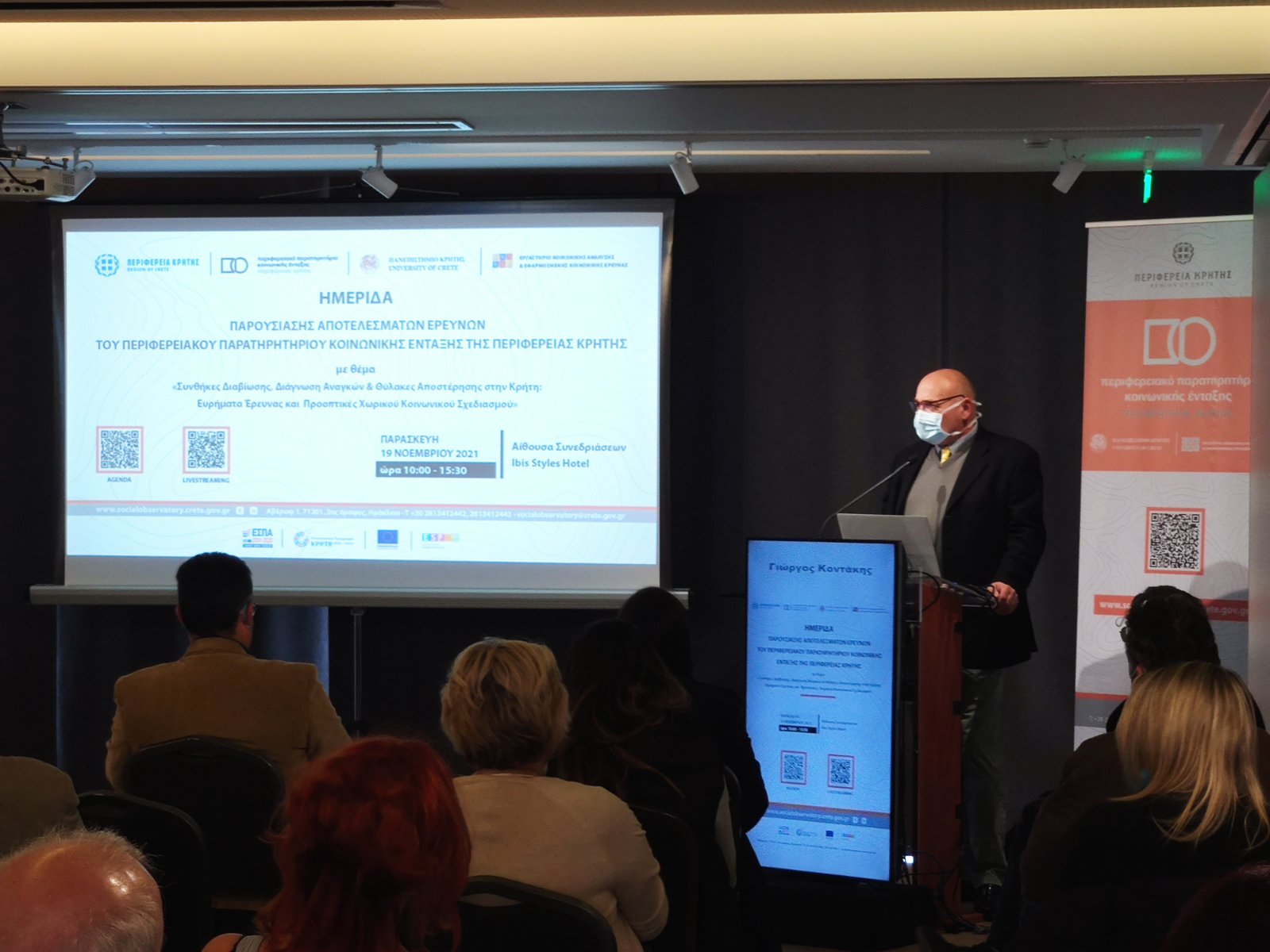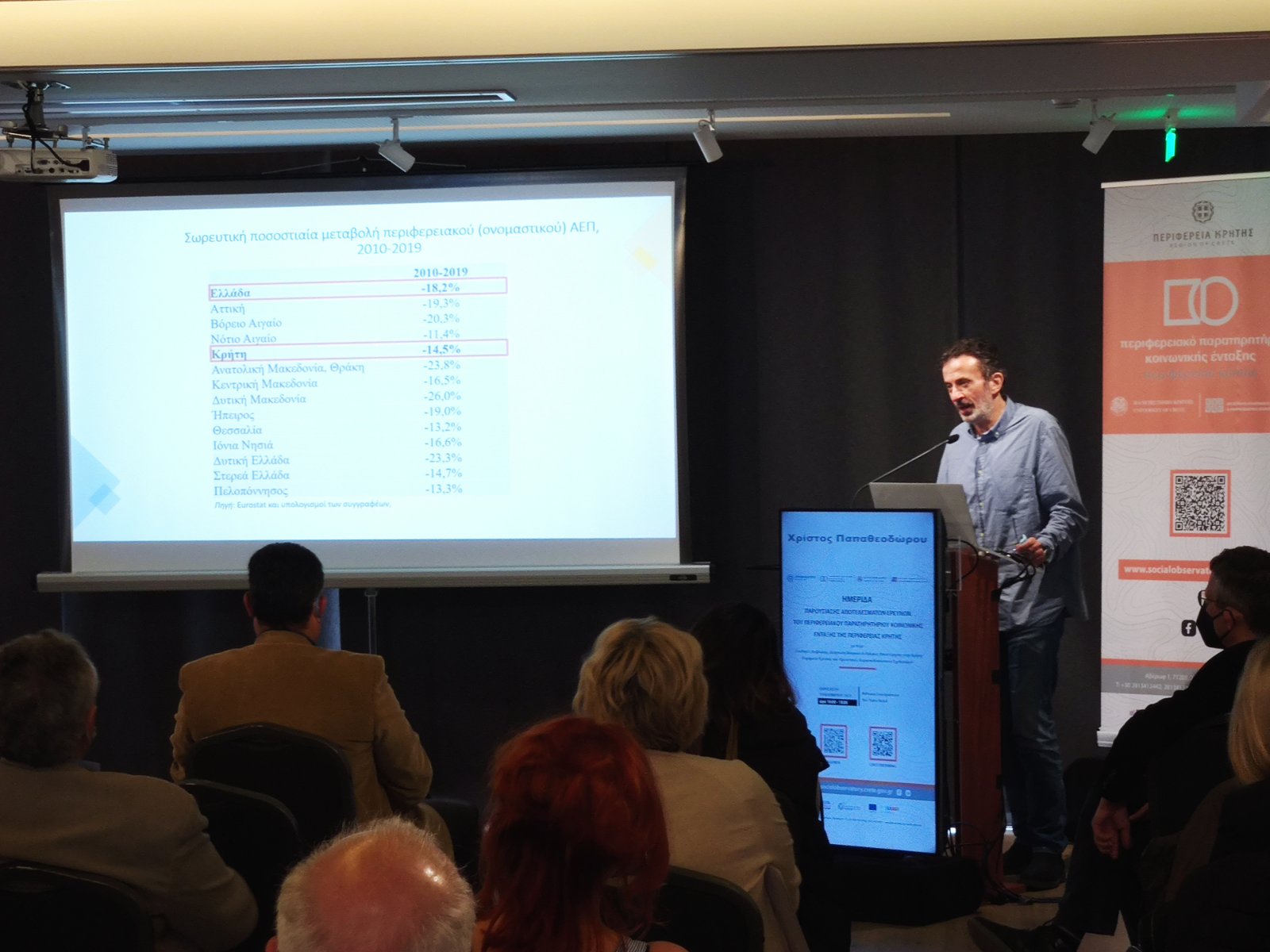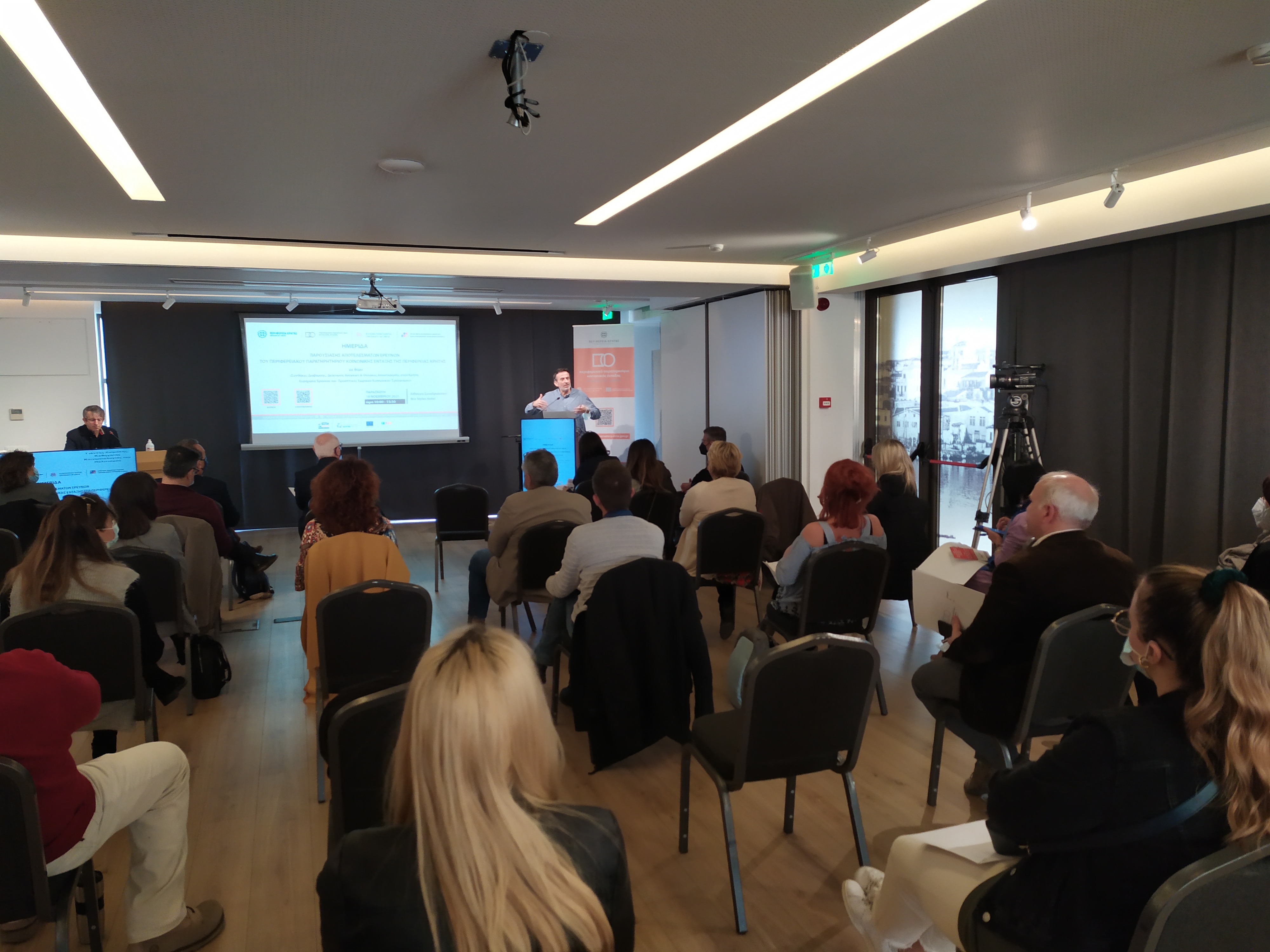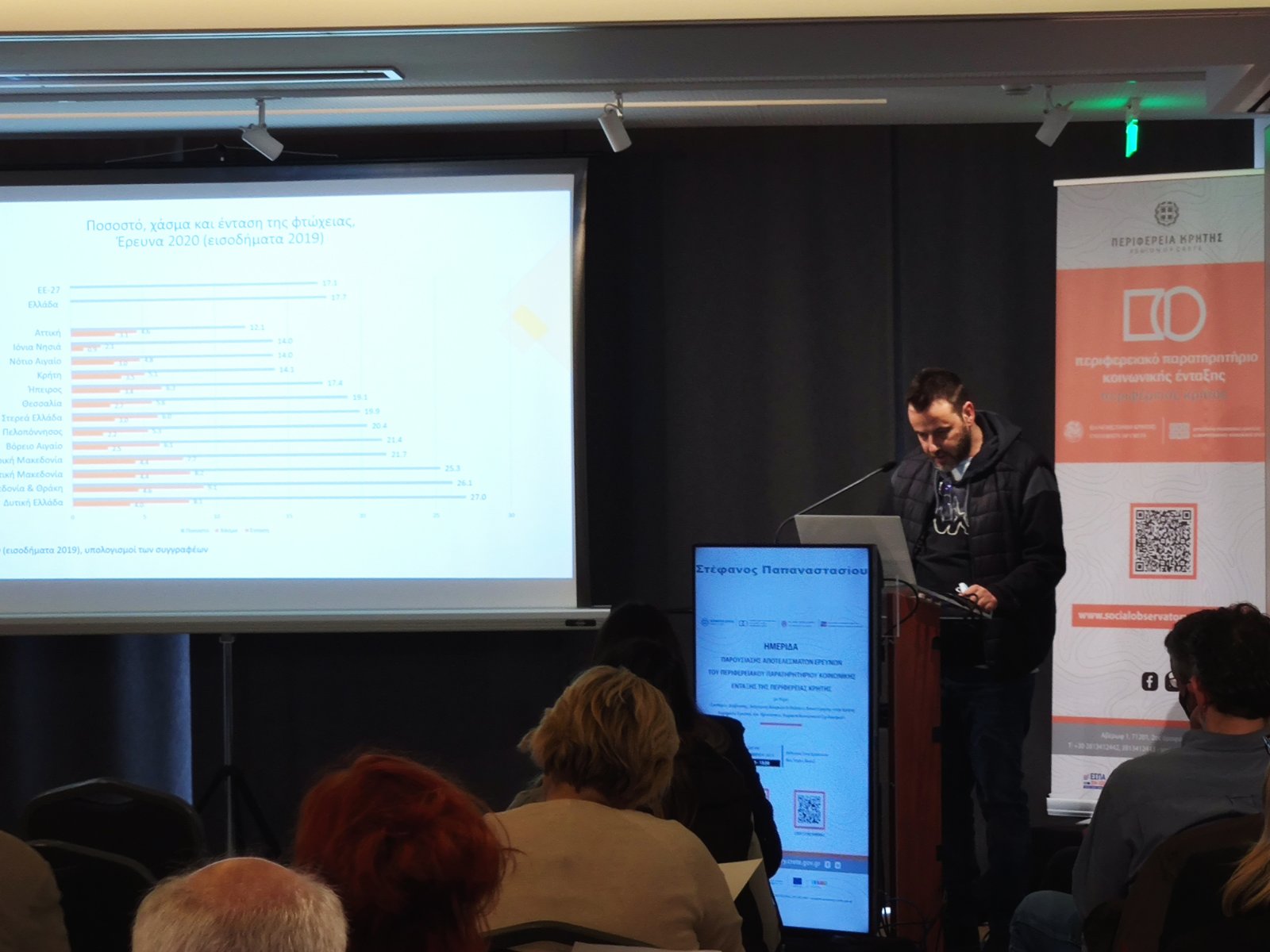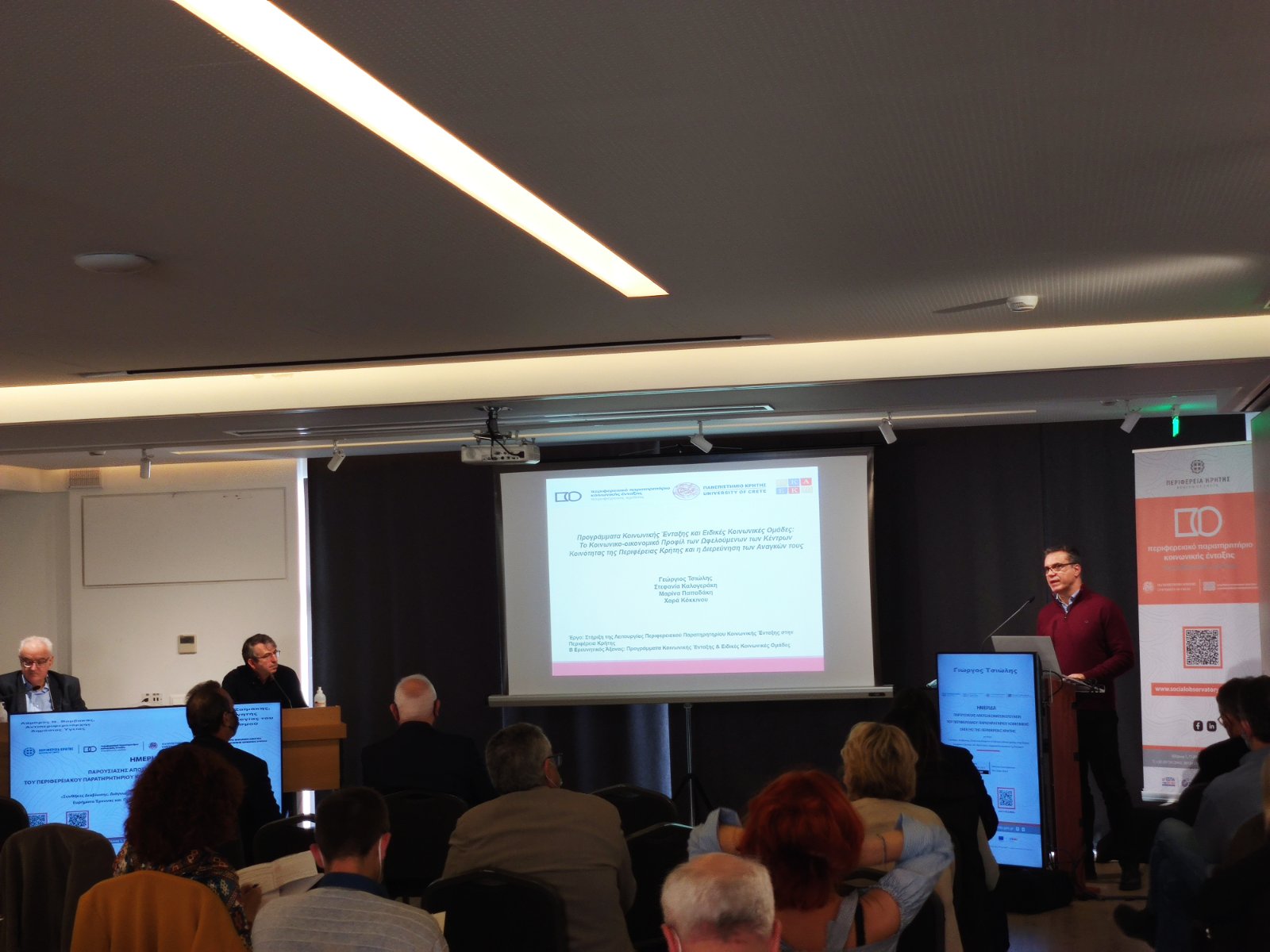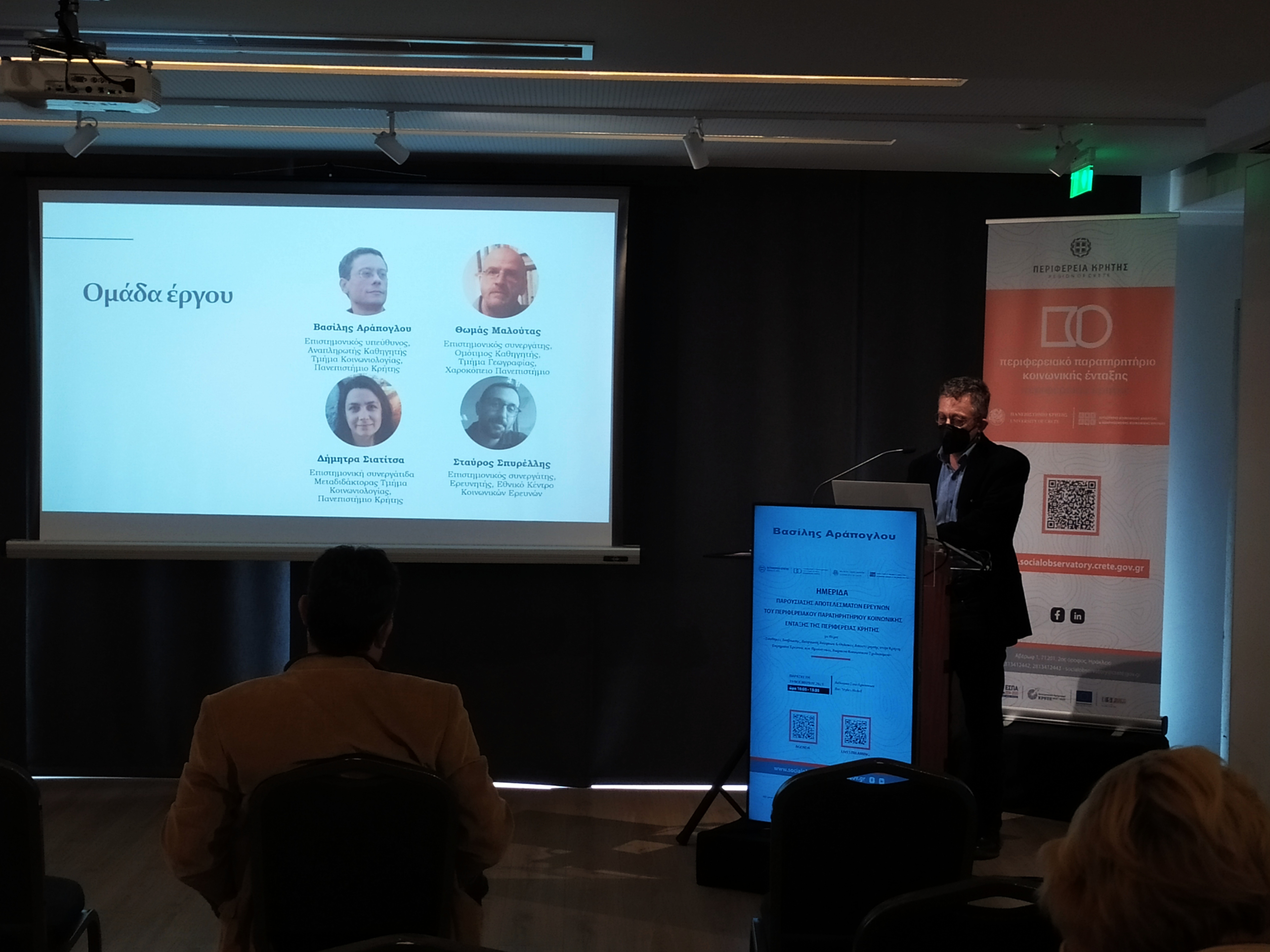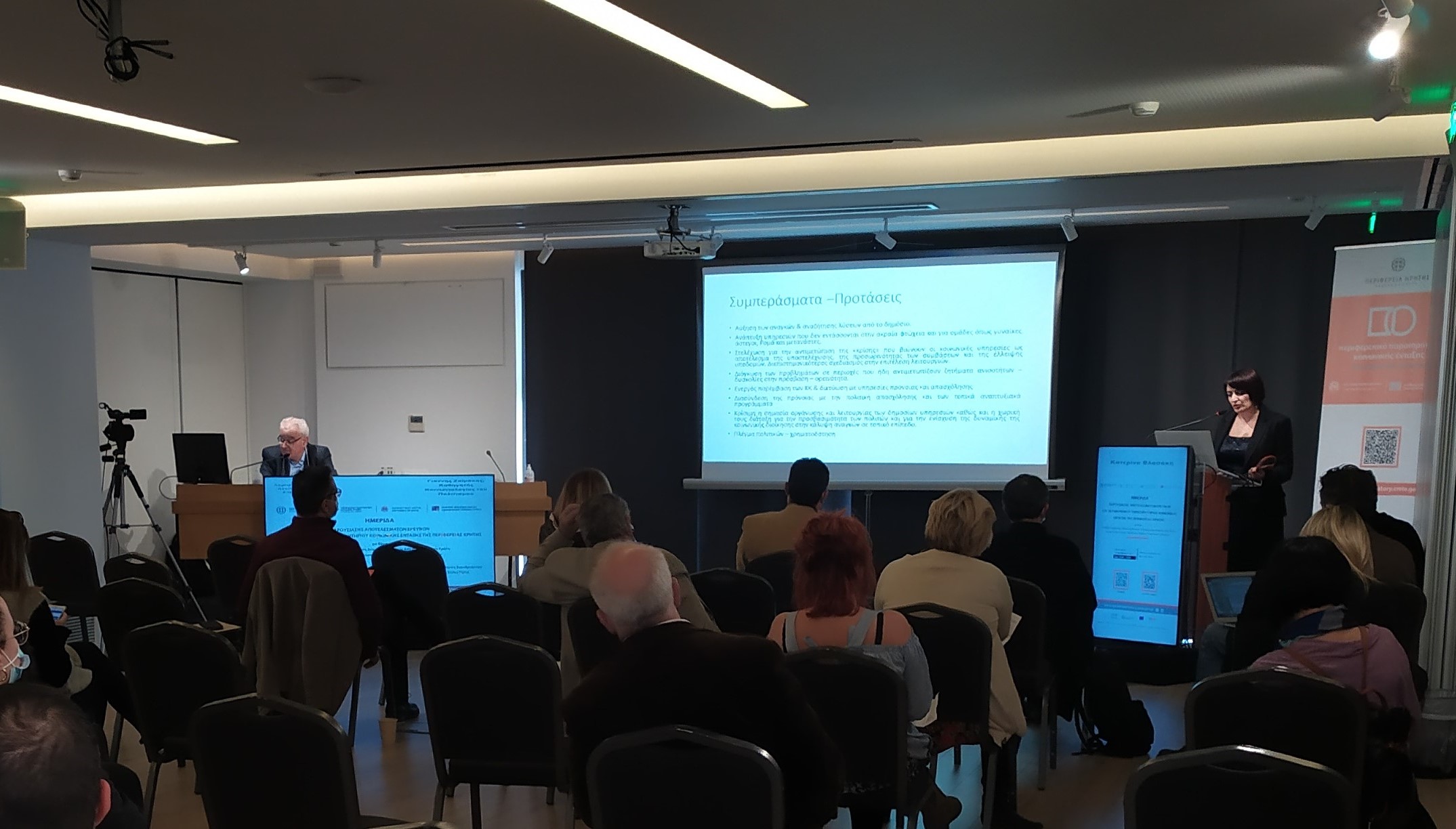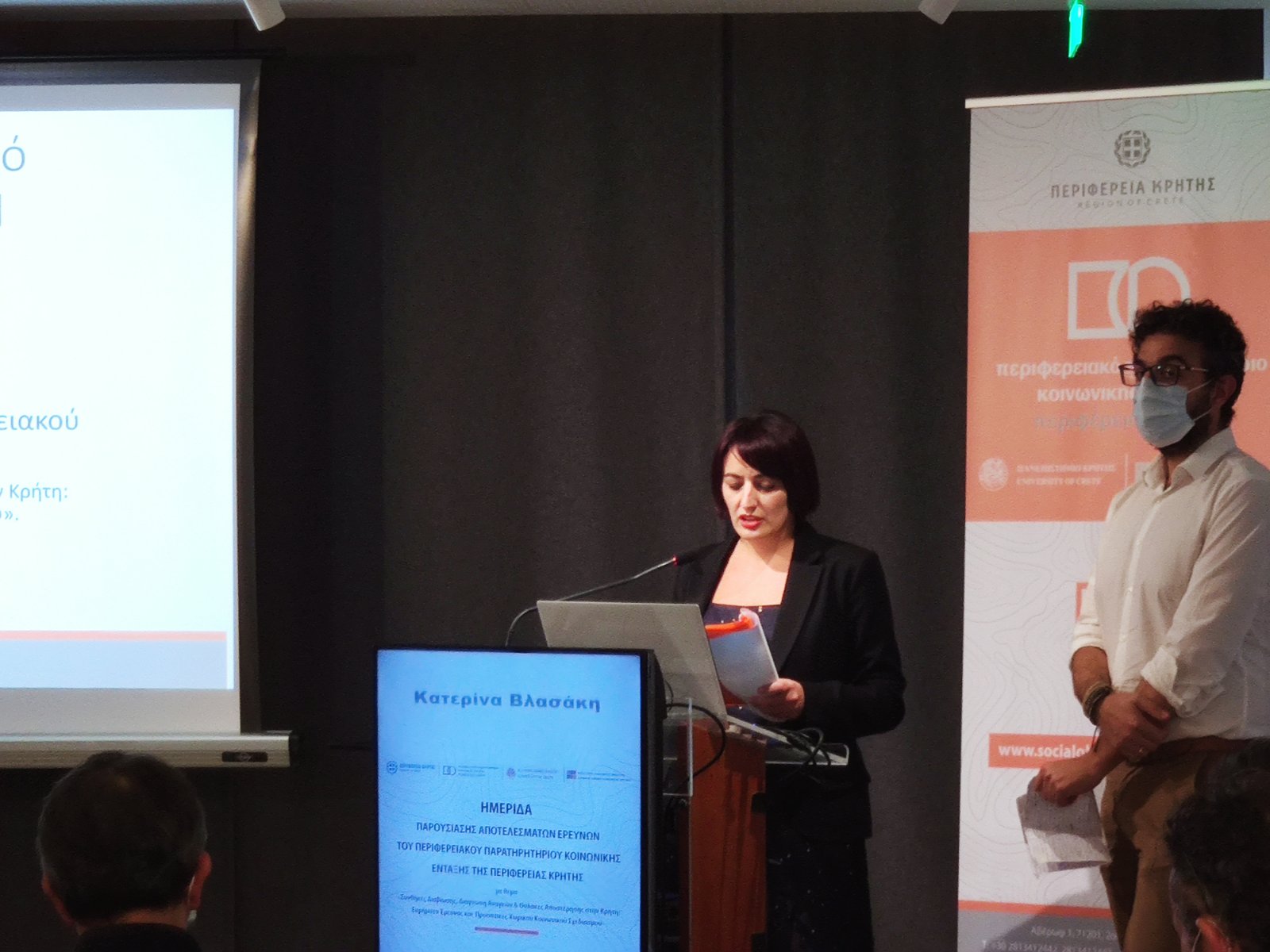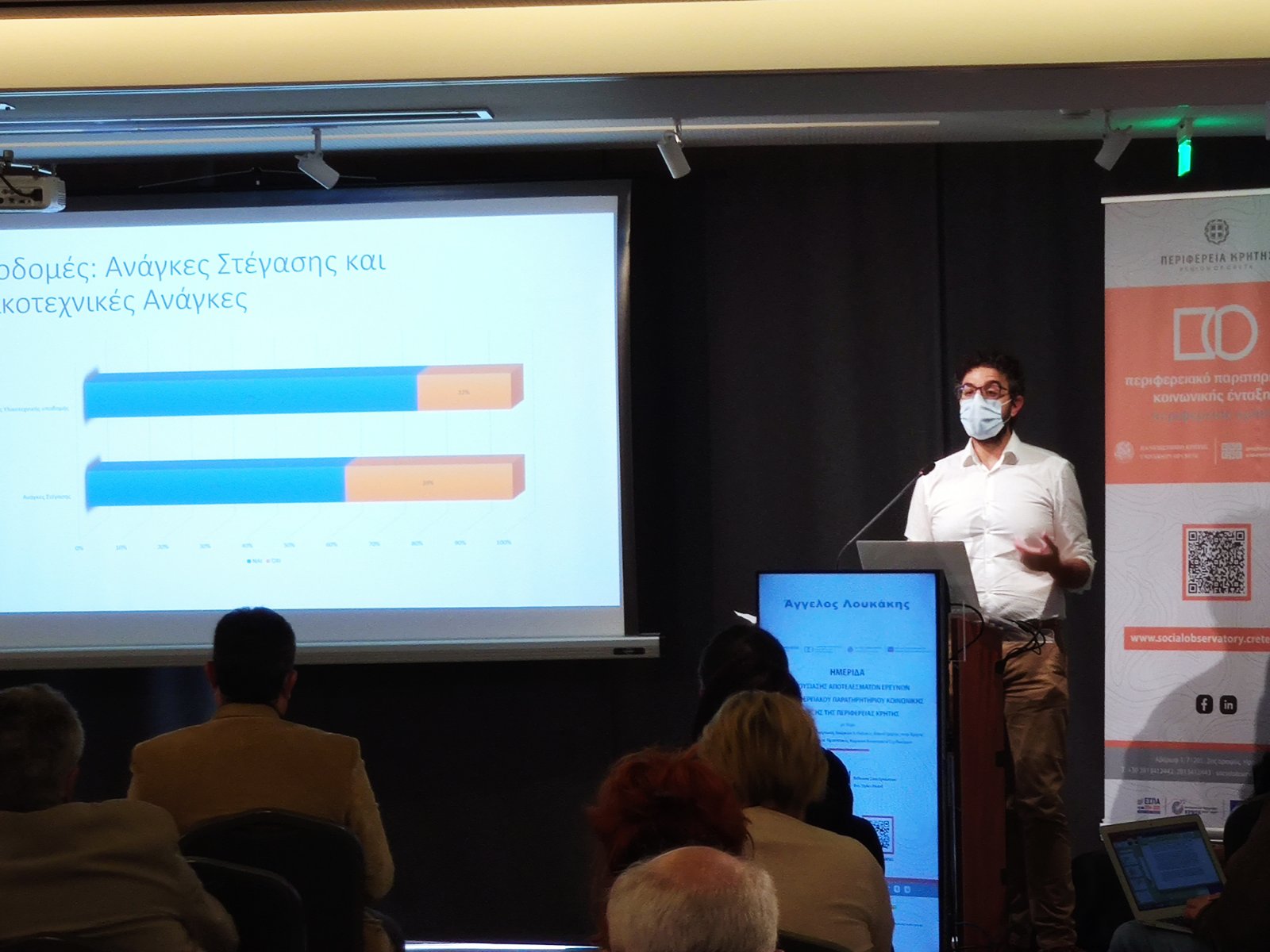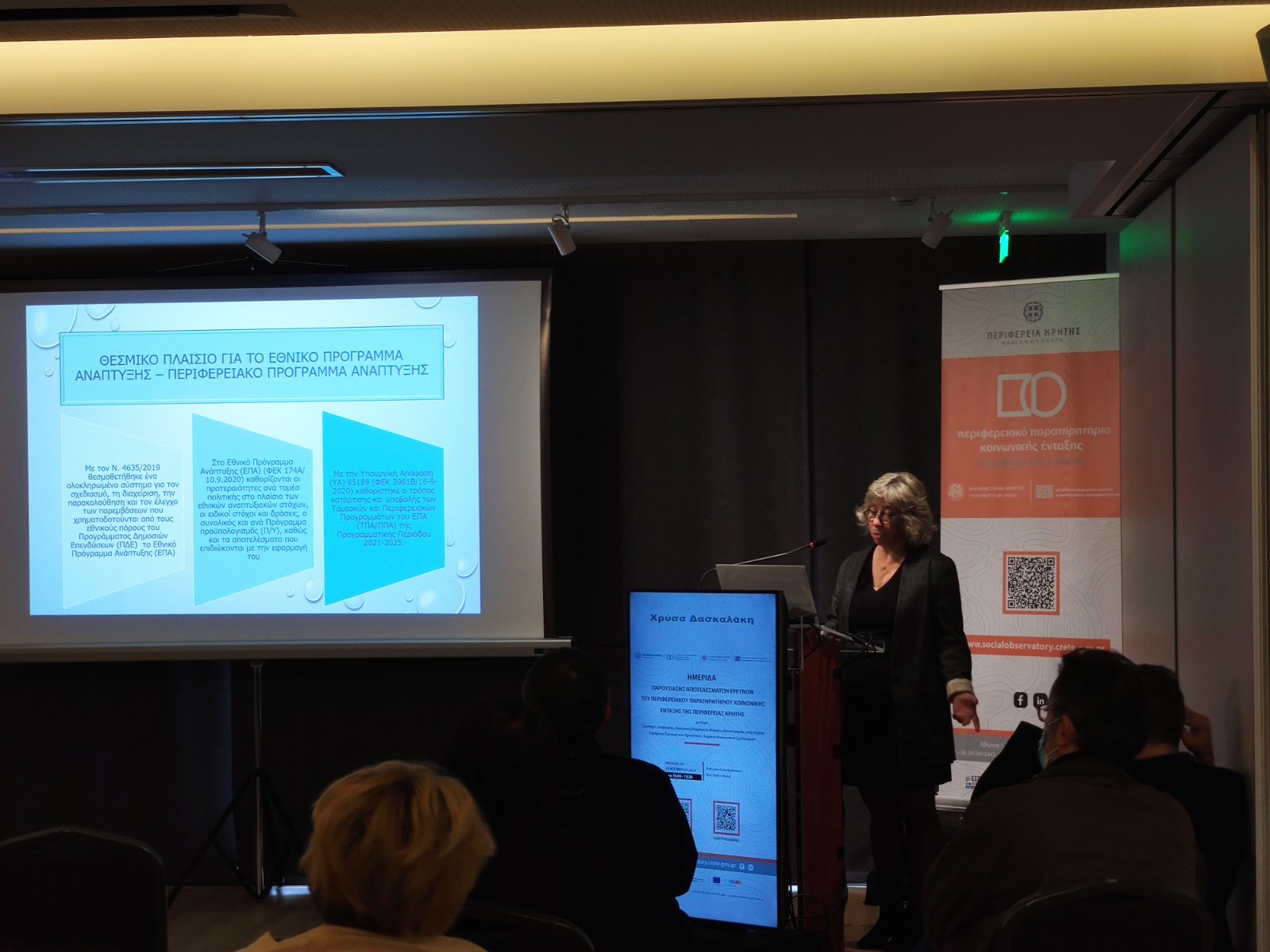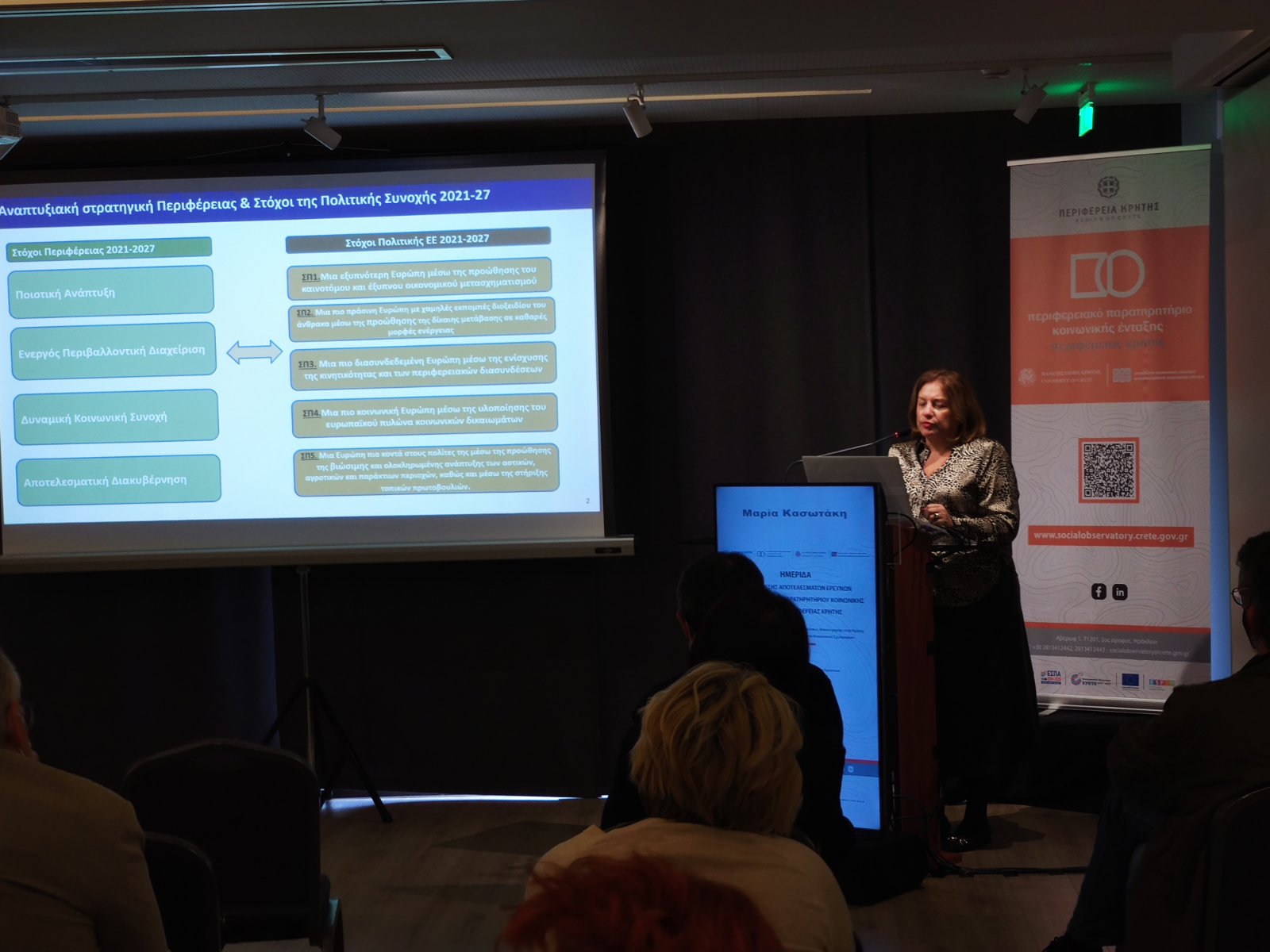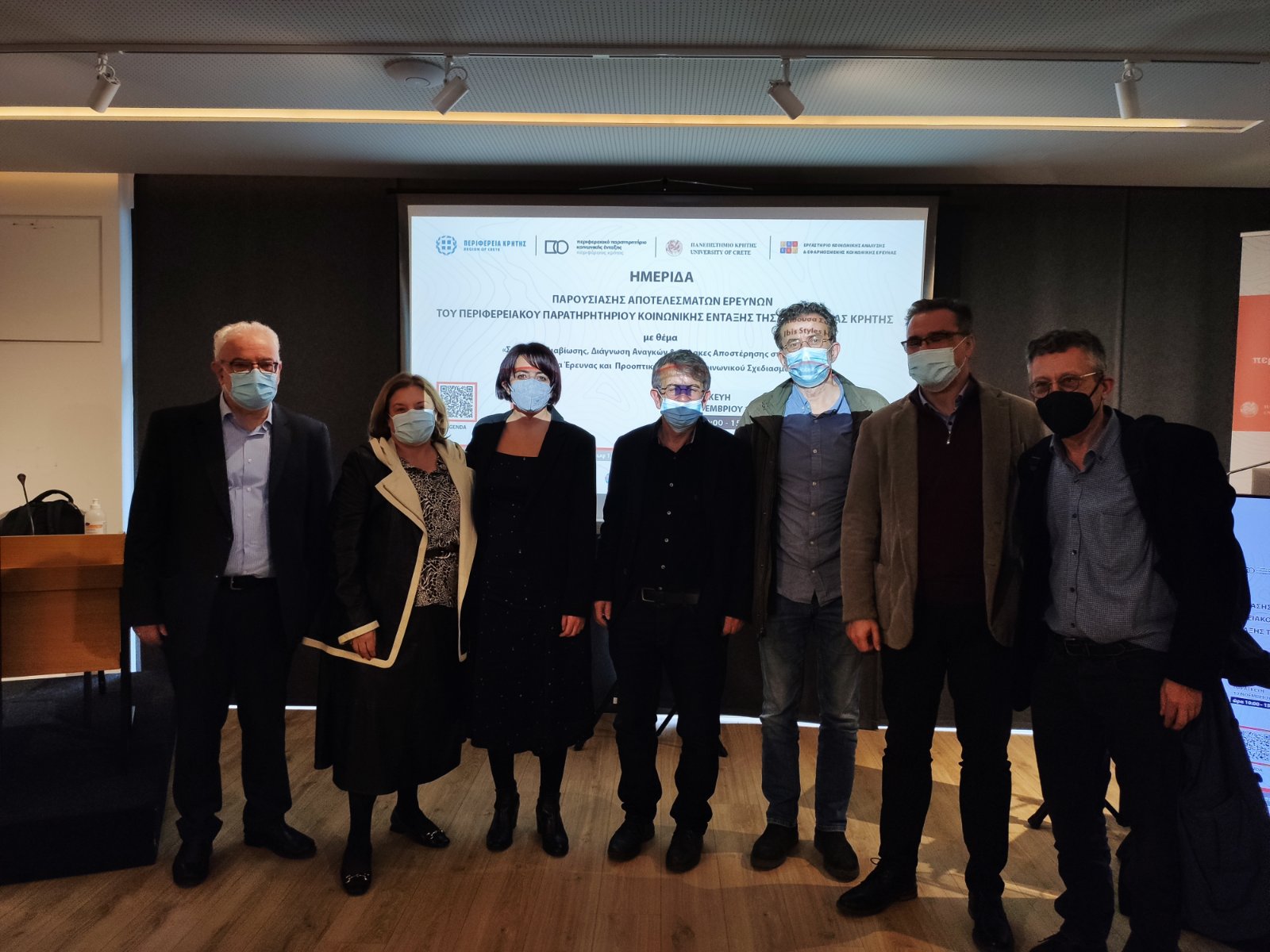Great participation and interest in the presentation of the results of the surveys of the Regional Observatory for Social Inclusion of the Region of Crete
The Region of Crete - Regional Observatory for Social Inclusion, in collaboration with the University of Crete - Laboratory of Social Analysis and Applied Social Research (EKAEKE) of the Department of Sociology, held a Conference to present the results of the research for Living Conditions in Crete, Needs Assessment & Deprivation Pockets in Crete: Research Findings and Spatial Social Planning Perspectives ". The meeting highlighted issues related to the monitoring of poverty and social exclusion in Crete.
More specifically, the research team of the University of Crete on inequality, poverty and material deprivation in the Region of Crete, scientifically responsible Professor of Social Policy Christos Papatheodorou, proceeded to capture these issues in comparison with other administrative the most recently available microdata from ELSTAT and Eurostat, of the 2020 survey. Emphasis was placed on the study of the evolution of these variables and the distributive effect of social protection, mainly through cash benefits. The data show that since 2017 inequality, poverty and material deprivation are easing in the Region of Crete and are moving lower than the national average. However, they continue to be quite high compared to the rest of the EU Regions. The impact of social transfers on the reduction of inequalities is relatively low and is limited to that of pensions. Other social benefits, except pensions, have a marginal effect.
The research team of social inclusion programs and special social groups of the University of Crete, with scientifically responsible George Tsiolis, Professor of Research Methodology in Social Sciences-Qualitative Research Methods, presented the results of quantitative research conducted in 16 Centers. Through quantitative analysis, the demographic and socio-economic profile of those registered in the Community Centers during the three years 2018-2020 was outlined. The research showed that these are mainly middle-aged people, unmarried, of Greek nationality. In terms of their employment status, the Community Centers enroll mainly unemployed, but also "poor workers", as well as people who have either not completed compulsory education or have completed secondary education. However, the relatively high percentage of graduates of higher education (13.6%) also makes an impression. The design and the first findings of a qualitative field research that aims to study the perspective of both the professionals active in the specific bodies (Community Centers) and the beneficiaries themselves were also presented. The meeting also presented the findings related to the needs of the beneficiaries, the evaluation of the effectiveness of the social inclusion and anti-poverty programs, as well as proposals that emerged from the speech of the stakeholders themselves to improve the programs.
The research team of the University of Crete for the identification of pockets of local deprivation and poverty, with scientifically responsible Associate Professor of Urban Sociology, Social Inequalities and Exclusion, Vassilis Arapoglou, developed an innovative application with " communities and smaller urban units in Heraklion and Chania) a set of indicators of income deprivation, employment, education, housing and care needs. The results of the application reveal significant inequalities within the region and in particular the concentration of urban deprivation pockets in Heraklion and the existence of a deprivation axis South and East of Crete that includes individual rural communities. The effects of the Pandemic on employment appear to be greater in deprived areas. Subsequent surveys will systematically document the local needs and capabilities of deprived areas and communities.
The head of the Observatory Katerina Vlasaki presented the research work of the Observatory team on the dynamics of social services and the contribution of Social Administration in meeting local needs. In this context, the criticality of the organization and operation of social services, their spatial arrangement as well as their interconnection with the employment sector and development programs was developed. These issues are considered important to enhance the effectiveness of interventions in even the most deprived and remote areas.
The coordinator of the program from the University of Crete, Giannis Zaimakis, Professor of Sociology of Culture, Sports and Community, stressed the importance of participatory social planning based on synergies of local actors (Region of Crete, universities, local communities, social services, development program experts) and linking applied social research to social policy at local and national level. The ultimate goal is to provide decision-makers with studies and research data that will contribute to the development of alternative scenarios of social policies and social inclusion strategies.
Finally, the planning and strategy of social development in the Region of Crete was presented by Chryssa Daskalaki, Deputy Head of General Planning for Development Planning of the Region of Crete and Maria Kassotaki, Head of the Special Service for the Operational Programme Management of the Region of Crete. In this context, the importance and perspective of linking the findings of the Observatory's research with the objectives of development programs and spatial interventions were emphasized.
As pointed out by the Deputy Regional Governor of Public Health and Social Policy of the Region of Crete, Lambros N. Vamvakas: "We are probably the only Region that has developed such an important cooperation with the University and that utilizes this cooperation with the University of Crete credible research in the field of social policy making. It is about developing an innovative, integrated and sustainable needs assessment mechanism, with a local dimension, that guides policies to be targeted and effective in the fight against poverty and social exclusion. Therefore, the Observatory is an important mechanism of social policy-making at local, regional and national level that uses contemporaty means of policy and technology (geoinformation system GIS of Crete) and financial tools in this direction ".
Watch the event in youtube: https://www.youtube.com/watch?v=Ex2Q95pHtDA




